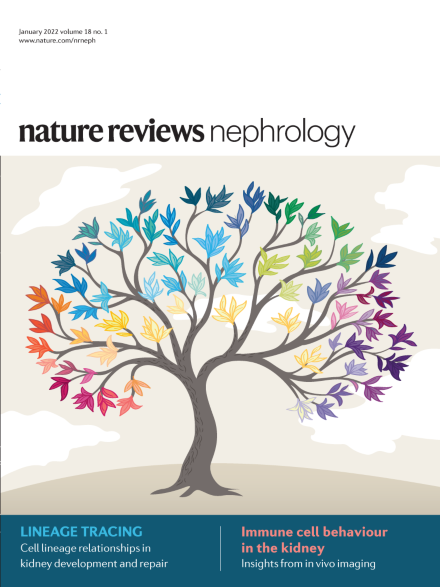从大数据到智能决策:肾脏风险评估中的人工智能
IF 39.8
1区 医学
Q1 UROLOGY & NEPHROLOGY
引用次数: 0
摘要
人工智能方法将患者数据与化学诱导的肾损伤模式联系起来,正在彻底改变肾毒性风险评估。综合方法的发展取得了实质性进展,这些方法利用大数据、分子谱和毒理学知识来识别高危患者,提供分子机制的见解,并推进预测肾病学。本文章由计算机程序翻译,如有差异,请以英文原文为准。
From big data to smart decisions: artificial intelligence in kidney risk assessment
Artificial intelligence approaches that link patient data with chemical-induced kidney injury patterns are revolutionizing nephrotoxicity risk assessment. Substantial progress has been made in the development of integrated approaches that leverage big data, molecular profiles and toxicological understanding to identify at-risk patients, provide insights into molecular mechanisms and advance predictive nephrology.
求助全文
通过发布文献求助,成功后即可免费获取论文全文。
去求助
来源期刊

Nature Reviews Nephrology
医学-泌尿学与肾脏学
CiteScore
39.00
自引率
1.20%
发文量
127
审稿时长
6-12 weeks
期刊介绍:
Nature Reviews Nephrology aims to be the premier source of reviews and commentaries for the scientific communities it serves.
It strives to publish authoritative, accessible articles.
Articles are enhanced with clearly understandable figures, tables, and other display items.
Nature Reviews Nephrology publishes Research Highlights, News & Views, Comments, Reviews, Perspectives, and Consensus Statements.
The content is relevant to nephrologists and basic science researchers.
The broad scope of the journal ensures that the work reaches the widest possible audience.
 求助内容:
求助内容: 应助结果提醒方式:
应助结果提醒方式:


